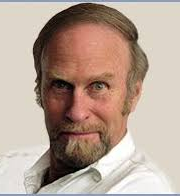 By Frosty Wooldridge
By Frosty Wooldridge
August 12, 2024
My friend Fred sat down in the booth at Woody’s Pizza in downtown Golden, Colorado last fall. He represented sartorial splendor in that he wore a suit and tie with Italian shoes. I slid into the booth opposite him.
“Good evening gentlemen,” the waitress greeted us.
“May I get you some drinks?”
“I’ll have a beer,” said Fred.
“Water works for me,” I said.
A month earlier, Fred drove home with his wife to an upscale housing area when she turned in the car, “I can’t do this anymore.”
Fred knew exactly what Jackie meant. She wanted a divorce from a marriage that didn’t work for her any more than it worked for him. When they married, everyone wondered how a high roller real estate maven hitched up to a mountain man who loved a tent more than a hotel. Nonetheless, they “made” it work for eight torturous years.
“Well,” said Fred. “I finished moving the last of my things. Thanks for helping me move the big stuff into my new digs.”
While he knew the marriage didn’t work, the pain of separation caused him emotional anguish.
That evening, over a pizza, Fred expressed his sorrows to me, his longtime friend.
As we talked, he ordered a second, third, fourth and fifth draughts—16-ounce big beers. Enough to knock down a buffalo! Near the end of our conversation, I wanted to speak up about his driving home with so many beers in his belly. But, unsure of myself, I remained silent. Fred drove home that night legally intoxicated, but he somehow avoided detection by the police.
Too often in our society, we use different drugs to numb the pain within us. Sometimes, friends watch friends spiral into alcoholism or drugs, or eating disorders without saying anything.
That night, I didn’t muster the courage to call for my wife to come down and drive him home while I drove his car back to his house. I failed to gather the courage to call him a cab and insist he use it.
Many times in life, in retrospect, we “wish” we said something at the time, but regret it later when we didn’t.
Two months later, after too many beers, Fred pulled out to pass a car on a two-lane highway, but didn’t see the yellow line. A cop pulled him over. The officer gave him a DUI ticket.
With $10,000.00, he fought it in court. He asked me if I could help him with driving him around for a week until he received an “interim” license because he appealed the ticket.
After a great deal of soul searching, he came to terms with his situation. He took personal responsibility. He understood his personal accountability.
He stopped drinking.
“After that night,” he said, “I evaluated my circumstances…I can’t drown my sorrow in booze. I can’t numb the pain. I’ve got to deal with it and deal with myself. I must meet it with a clear mind, clear heart and clear understanding. That’s what I’m doing. This ticket will cost me a lot of money, but I’m lucky the cop stopped me before I killed myself or someone else. I’m done drinking.”
A writer-alcoholic Dina Kucera said, “I felt empty and sad for years, and for a long, long time, alcohol worked. I’d drink, and all the sadness would go away. Not only did the sadness go away, but I was fantastic. I was beautiful, funny and I could do math. But at some point, the booze stopped working. Every time I drank, I could feel pieces of me leaving. I continued to drink until there was nothing left. Just emptiness.”
“Fred,” I said. “What made you decide to stop drinking?”
“To be quite honest,” he said, “I am going to make it through this divorce. I feel the pain. I am working through it. I felt fine before I got married. I am going to be fine again. I decided to choose me.”
© 2024 Frosty Wooldridge – All Rights Reserved
E-Mail Frosty: frostyw@juno.com




